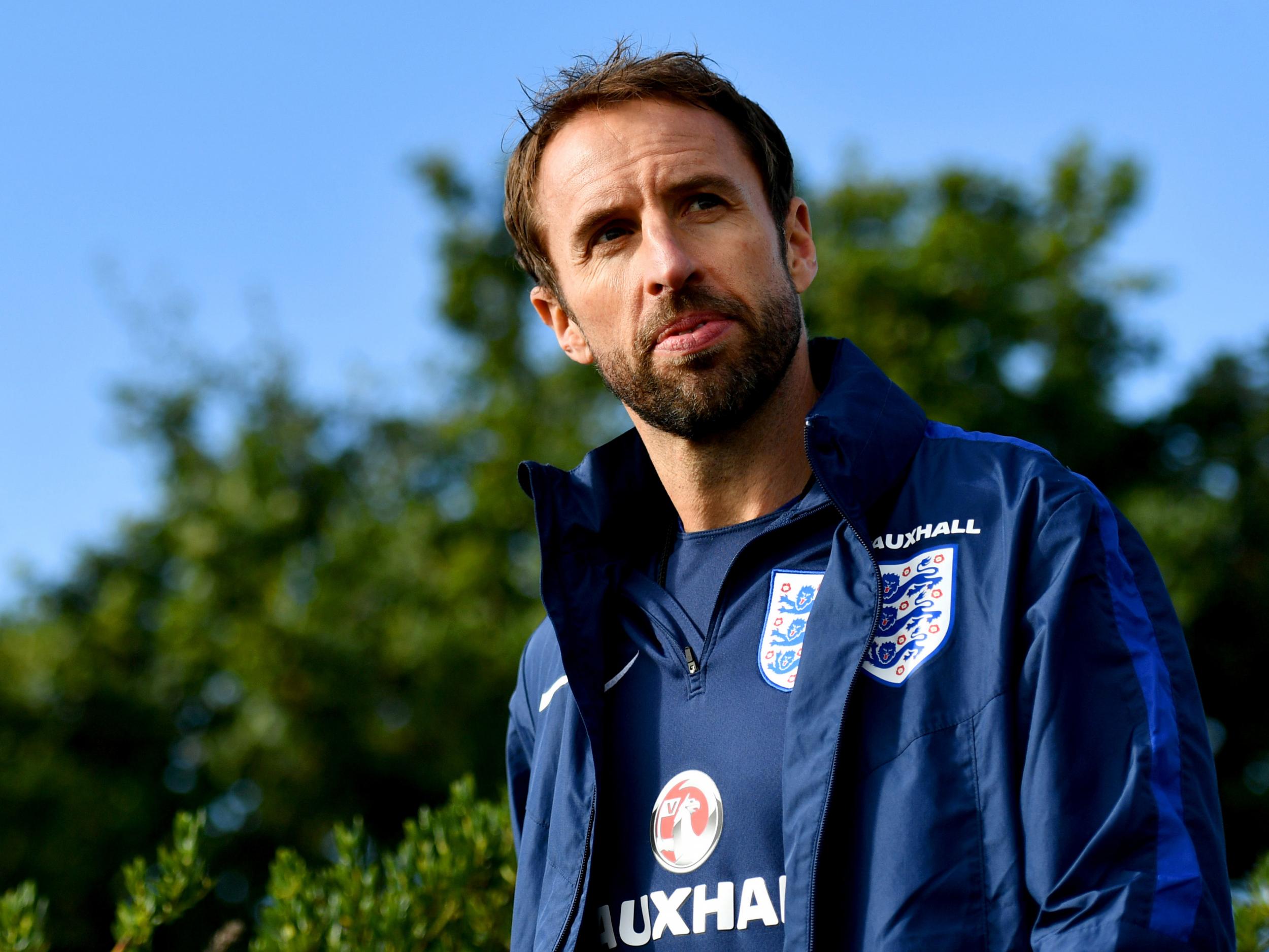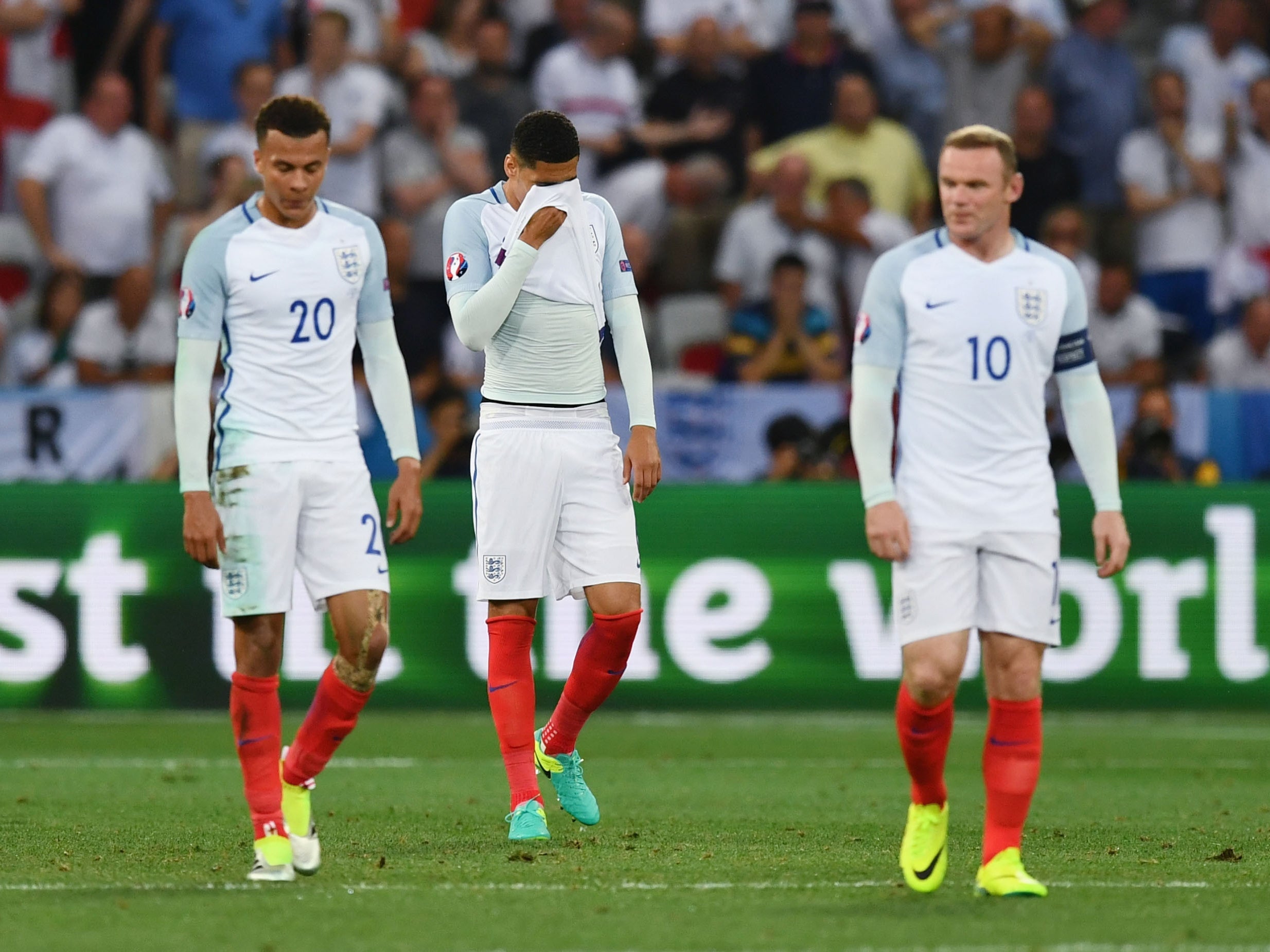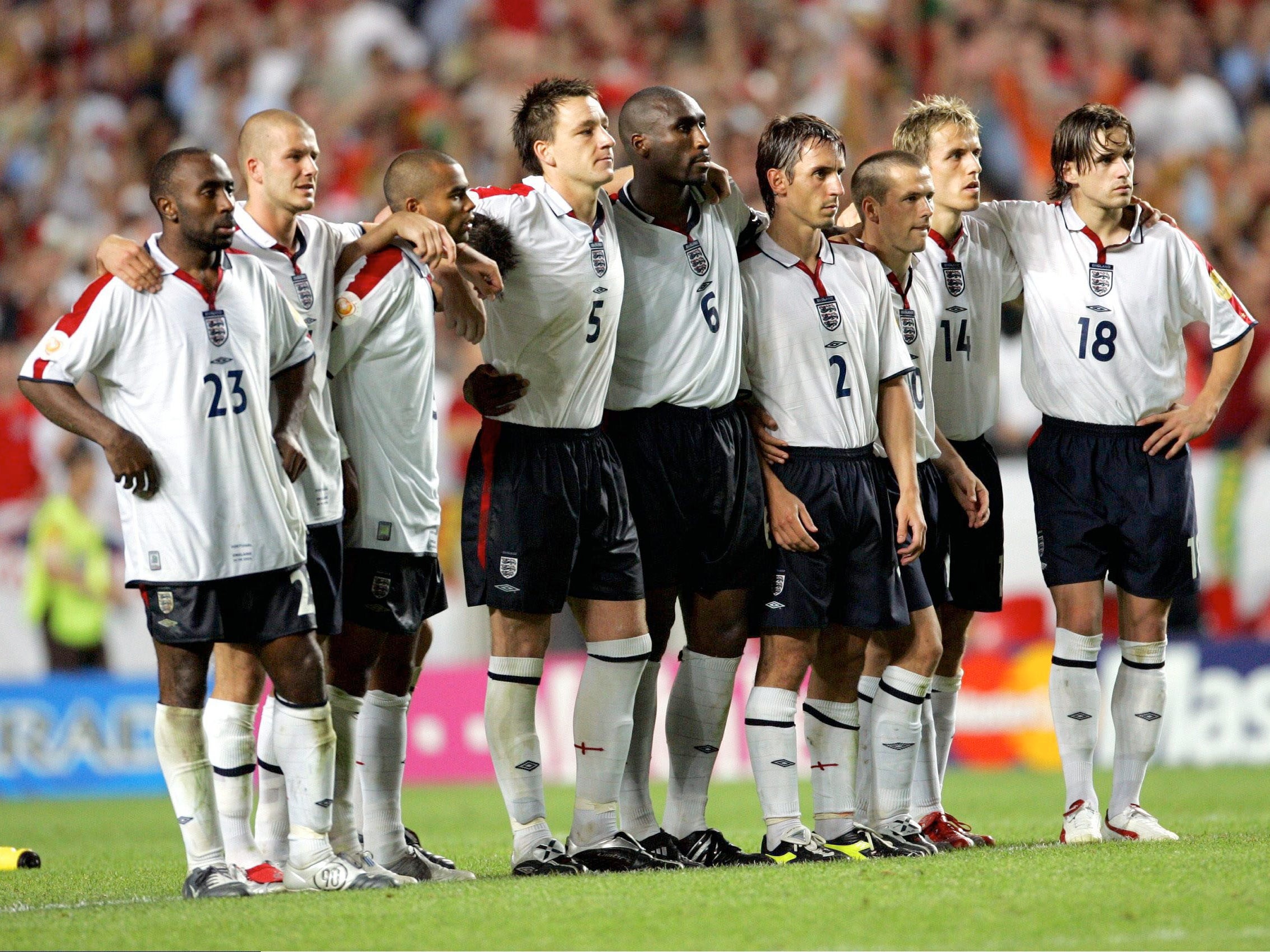Gareth Southgate knows why England always fail at major tournaments, now it's his job to change it
Southgate and his assistant Steve Holland are working hard already to end the neurotic and paralysed tournament performances that have recently characterised England

England assistant Steve Holland was watching from miles away, and couldn’t fail to see the signs.
Opposition managers like Russia’s Leonid Slutskiy were watching from the sidelines, and couldn’t help but notice it.
The England players have spent the week in St George’s Park, and still can’t help talking about it, still can’t get away from it. It was all too obvious, all too painful.
That was the sight of a team utterly freezing, almost paralysed by fear of failure, in the 2-1 defeat to Iceland in the Euro 2016 second round.

Holland perhaps put it best, about a moment many of the players have described as their worst in an England shirt.
“Maybe you were in the stadium or, like me, sitting on holiday, watching it, looking around at the players and thinking ‘bloody hell, they have gone’.
Whatever about the debate regarding the actual quality of the England squad, the point was that they were panicking, they were not doing anything we know they can do - and this against a moderate team.
Slutskiy felt it was about more than one game, though, having seen something similar in the opening 1-1 draw with Russia. Rather than revving up when they had the lead, England began to meekly retreat.

“It seems to be a lack of confidence, I felt it when we played England,” Slutskiy told the Independent on Wednesday.
“Having the pressure of the whole country is different from one club… reaching the finals is no problem but, as soon as you get there, there seems to be a problem and that must be a mental problem.”
It is one of the main problems that Gareth Southgate and his staff have identified, and it’s difficult not to think he has a strong point, given how obvious it has been going back far further than that Iceland match.

With every single modern England campaign, it feels like defiant talk is always of a new hope for the future, but the defining thinking is always about the most recent big failure. That is really what conditions everything; what overshadows everything and also underscores everything.
No matter how many qualifying games England win, no matter how convincing they look in brushing aside some mid-sized European nation in the months outside June and July, it evaporates amid the sudden mid-tournament realisation of what elimination will mean.
It could even be argued that it is a big reason why England no longer seem to even be involved in the most epic games of tournaments any more, as they regularly were around the turn of the millennium.

Back then, no doubt emboldened by the more optimistic memories of 1990 and 1996, it felt that England played with more adventure; more abandon, creating some genuinely special moment-filled tournament games: Argentina 2-2 England, 1998; England 2-3 Portugal, 2000; Brazil 2-1 England, 2002; Portugal 2-2 England, 2004.
Sure, they still might have failed, but for different reasons to now. Since then, though, it is as if those failures have had a cumulative effect; deepening a fear of failure; deepening a cycle and creating ever more neurotic and paralysed tournament performances that reached a nadir against Iceland.
This is what Southgate wants to tackle, especially now that he finally has extended time with the team for the first time since taking over. He wants to invert it. He wants to get the England players to be so comfortable with themselves that they can freely talk about what happened against Iceland, but not have their thinking affected it; to focus the memory of it in the right way.

It was part of the thinking behind the much-discussed boot camp with the Royal Marines.
“Even the stuff we did at the weekend, taking us out of our comfort zone, changing the scenery a bit,” Harry Kane says.
“He could have easily taken us to somewhere like Portugal, where it’s nice weather and you play a bit of golf and do things that have been done in the past, but he wanted to change it. He wanted to change the way we are and try something different.
“Because in recent times we haven’t been great for England in tournaments. It’s about trying to change that mental attitude and fair play to him for doing it.”

If that sounds like an attempt at a quick-fix, it is anything but. It is merely part of an ongoing process, and it is worth pointing out that the New Zealand rugby team have introduced their players to similar military thinking. The point is just to gradually learn to better handle pressure situations, to prevent panic, as Holland explains.
“Handling situations where there was pressure,” the new assistant explains. “They were out of their comfort zones, they didn’t feel good about what they were being asked to do, again with limited physical risk.
“There was one exercise where I can speak from personal experience, where we were stood knee high in water and there was a tube full of water, it wasn’t very long, and there was a Marine at each end so there was no danger of anything going wrong.
“So you had to go into the tube out the other side. You couldn’t see, you were under the water in the tube, albeit for a very short time with a marine at both ends.
“Well I didn’t fancy it for a second… I wasn’t comfortable. I’m trying to relate that back into football. There are moments on the football pitch and again I don’t want to criticise the Iceland game all of the time but obviously it is everybody’s reference.
“This is a pressure moment, who is stepping to the fore. It looked to me like there was nobody.
“Does what we did at the weekend solve that? Not in one hit, no. But having identified it, it is part of a process that hopefully in the short term but also in the long term will create a different mindset within the group that can help us. It is as simple as that.”

It’s harder to solve, of course. There is also a wonder whether England almost suffer from the Bayern Munich or Juventus super-club problem, albeit obviously on a different scale. Just as England breeze through qualification campaigns, they seem to breeze through their domestic leagues, only to then suddenly suffer exacting defeats when they face superior sides in Europe.
They are obviously on a different scale, but Bayern Munich’s 2015 3-0 loss to Barcelona or even Juventus’ 4-1 loss to Real Madrid last week could be argued as someway commensurate to England’s recent eliminations.
It is not that they can’t compete with these sides, it is how they struggle to adapt to sudden new challenges; to being put outside their comfort zones.
They have to learn how to deal with it, just as the England staff have learned it’s time to finally work out how.
Join our commenting forum
Join thought-provoking conversations, follow other Independent readers and see their replies
Comments
Bookmark popover
Removed from bookmarks